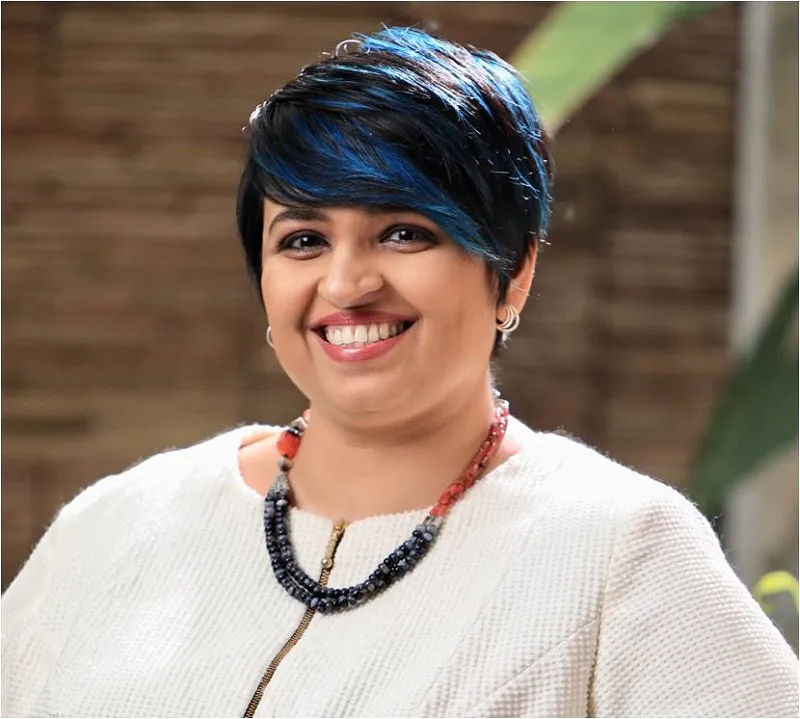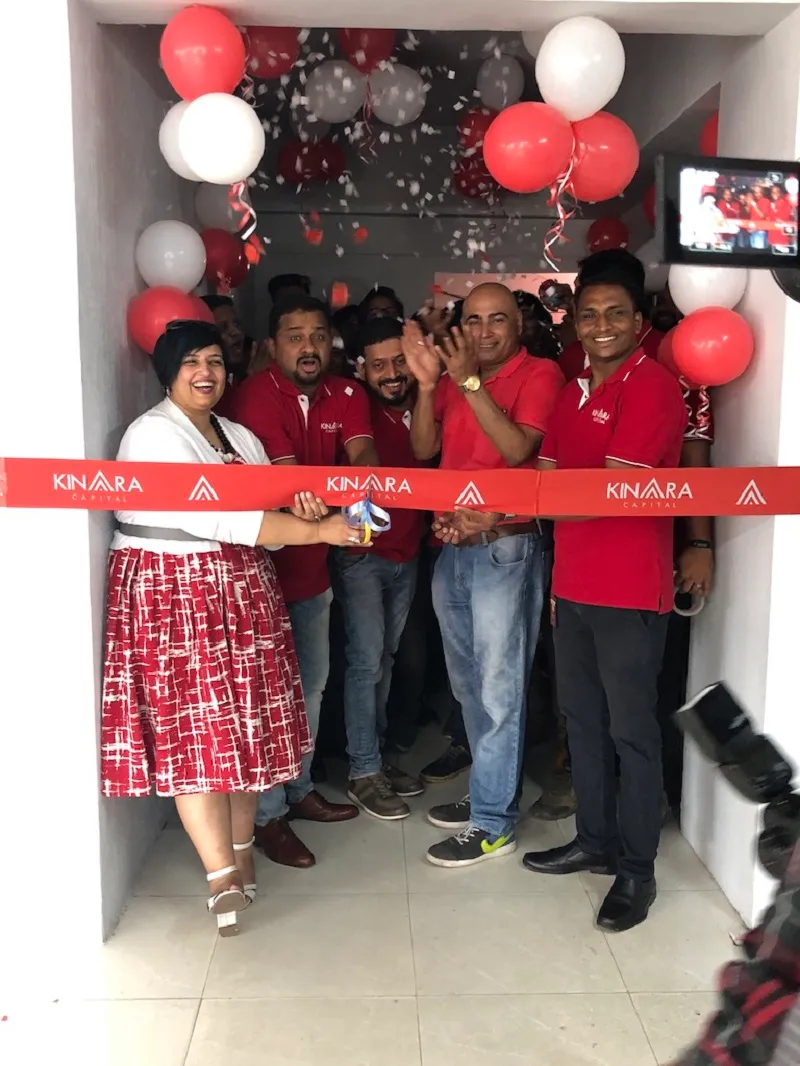How Kinara Capital’s Hardika Shah was inspired to help small business entrepreneurs dream big
Kinara Capital’s Founder, Hardika Shah, talks about making the most of opportunities, being true to oneself, and creating impact alongside profitability
“When life gives you lemons, make lemonade,” is an age old adage used to encourage optimism in the face of adversity. For Hardika Shah, founder of fintech loan marketplace , this has been her mantra all her life.
“Being from a middle class family, having a blind but ambitious father and an entrepreneur mother, I saw a lot of struggle, inspiration and plenty of jugaad from my early years,” says Hardika. “The importance of hard work and education was always stressed upon. Bucking the cultural norms, my parents let my sister and me break the barriers on what is “acceptable” for girls to follow.”
Today, with Kinara Capital, Hardika is transforming the lives of many women like her, and helping them stand on their feet.

Kinara Capital offers asset purchase and working capital collateral-free business loans in the range of Rs 1 lakh to 30 lakhs within a 24-hour disbursement cycle. The credit assessments are done with the help of Artificial Intelligence and Machine Learning (AI/ML) based data-driven automated credit decisioning.
The startup has committed to disbursing Rs 100 crores in business capital to women entrepreneurs with its HerVikas program that provides an automatic upfront discount to women business owners, without requiring any separate documentation.
“We are defying common industry practices, which unfortunately includes quizzing a woman on how she handles a household and a business, questions around childcare, and if they have “permission” to apply for a business loan from their father or husband,” she adds.
Overall, in its mission to address the credit gap for MSMEs, Kinara Capital has disbursed over INR 2000 crores across 56,000+ loans in 90+ urban, peri-urban and rural locations in India. The social impact of their financial inclusion work has led to an incremental income generation of INR 700 crores for the small business entrepreneurs, and led to more than 250,000 jobs created or sustained, as claimed by the founder.
To date, they have raised $300 million in debt and equity financing from a range of partners. The startup has also received a lot of recognition and support from prominent social impact organisations including Michael & Susan Dell Foundation (MSDF), GAWA Capital, Patamar Capital, Sorenson Foundation, U.S. International Development Finance Corporation (DFC), Impact Investment Exchange (IIX), Blue Orchard, responsibility and Symbiotic.
In a recent interaction with YourStory, Hardika traverses through her life journey, challenges faced, and talks about how she is helping Indian women entrepreneurs to fulfill their dreams. Edited excerpts here:
The early journey
Hardika reminisces that her family has always valued entrepreneurial traits like resilience and patience. Her father, who is blind and was born in a small village in Gujarat, became an accomplished professor of political science at the University of Bombay. Today, he continues to teach in the US. Her mother always had entrepreneurial leanings, was very active with volunteer groups and ran a couple of small businesses while Hardika was growing up.
The couple’s strong belief in their daughters led to them selling their home to pave the way for Hardika to pursue further studies in the US. This was practically unheard of back in the late 80s - for a middle class family to make such a huge sacrifice for their daughter.
“So, at age 16, I boarded a flight alone to the US for my undergrad studies. As they wished me goodbye at the airport, they reminded me to not be afraid, to be bold, to be true to oneself, and be okay with taking risks in life as that is the only way that change is possible,” she says.
Hardika chose the then-emerging field of Computer Science, and a career in Management Consulting. While working in Silicon Valley, she began taking time out for pro-bono mentoring at Stanford and UC Santa Clara programs for social entrepreneurs. She was intrigued with the concepts of sustainable models that prioritised both community impact and profitability.
“So, I decided to explore new possibilities and pursued a joint MBA with Columbia Business School and UC Berkeley’s Haas School of Business. And Business School thus became the genesis of the Kinara concept.”

Taking the entrepreneurial path
Although Hardika believes that a lot has changed for today’s generation of women, she feels inherent challenges still remain.
“On a visit back to India, and reconnecting with people from my early days made me realise that the struggles my mother faced to set up a small business were exactly the same two decades later on for small business entrepreneurs!,” she exclaims. “Economic liberalisation had not addressed the massive credit gap in India for MSMEs, and thus, many were locked out of experiencing growth of their businesses.”
There are significant systemic challenges faced by women entrepreneurs in India, at any level. However, these are more pronounced for women who are also micro/small entrepreneurs. For instance,
- less than 14 percent of all businesses in India are owned by women
- lack of formalisation creates more barriers to access formal financing by women
- lack of support for childcare, family/household management or elderly care
- those who prefer speaking in vernacular or lack formal education, there is an information gap on such basics as to how to register a business or apply for a second KYC
Also, IFC reports that women entrepreneurs are likely to face higher borrowing costs, required to provide collateral for a higher share of their loans, and face longer wait times for loan disbursement compared to their male counterparts.
“These additional hurdles therefore are possibly the reasons why more men are able to move towards launching and growing their own businesses, but not enough women are able to transition from the role of a worker-to-entrepreneur,” she added.
Looking to bridge these gaps, she started building risk-assessment models during her business school days and then set up an on-the-ground pilot in India which was a roaring success. This inspired Hardika to close the chapter on her Silicon Valley life and move to Bengaluru in 2011, with the sole purpose of setting up Kinara Capital.
“Years after flying to the US for my undergrad, here I was with my parents again wishing me bon voyage -- in reverse this time -- as I flew out to India starting anew with my whole life packed in two suitcases. Yet, they said the same to me even after all these years -- be bold, be true to yourself, and remember changing the world can only happen when one is willing to take risks to make it possible.”

The Way Ahead
India is the world’s fastest growing major economy with over 63 million MSMEs. The World Bank estimated the MSME credit gap in India stood at approximately USD$300 billion, and that was pre-Covid! So, the demand is massive for small businesses in India to be able to access financing, especially as they try to rebuild and grow this year.
Kinara Capital is looking to leverage this with a three pillar approach thereby tackling the credit access gap with a user-friendly vernacular digital loan application process information gap by introducing new value-add skilling services for Kinara customers, and gender gap supporting even more women entrepreneurs with our discounted HerVikas program.
Hardika firmly believes that change begins at the top, and for minorities to get a seat at the table, the opportunity must first be created!
“So, we are one of the very few companies with a women-majority management team,” she added. Kinara Capital is also a welcoming workplace for the LGBT community and people with physical challenges. Some time ago, they also partnered with the National Association for the Blind (NAB).
“Having grown up with a blind father, I value that we are finding ways to open doors for everyone to have an opportunity to pursue a career in finance. Inclusivity is one of our core company values, and I am proud that our team across regions and departments hold this in high regard,” concludes Hardika.
Edited by Anju Narayanan




![[Exclusive] Y-Combinator-backed Infinity bags $1.9M in pre-seed funding](https://images.yourstory.com/cs/2/ebefb4a0b2a011edb86579ca40e04503/CopyofNewPPTTemplates72-1738840052395.jpg?mode=crop&crop=faces&ar=1%3A1&format=auto&w=1920&q=75)


